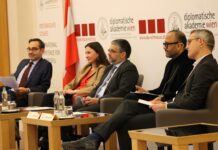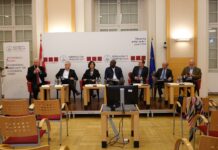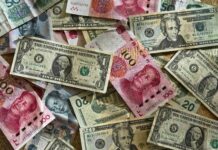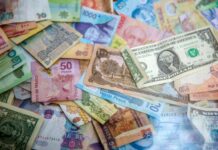Sustainability versus Finance – The EU’s Fight for Financially Responsible Climate Legislation
The European Union finds itself at a crossroads yet again. A slow recovery from the COVID-19 crisis as well as the ensuing price increases...
The Inevitable Rise of China? Unpacking the Limits of the Chinese Growth Model
Over the past few decades, China’s economic transformation has been miraculous. The country has risen from dire poverty to become the world’s second-largest economy,...
The AI Revolution
Polemics Coverage of the Dialogue of Continents Conference, organized by the Reinventing Bretton Woods Committee, December 4-5, 2023.
As part of the Dialogue of Continents...
An International Financial System for All? Climate, Security, Resilience, and the Changing Nature of...
Polemics Coverage of the Dialogue of Continents Conference, organized by the Reinventing Bretton Woods Committee, December 4-5, 2023.
The last panel of the conference was...
Derisking, Strategic Autonomy, and Economic Security
Polemics Coverage of the Dialogue of Continents Conference, organized by the Reinventing Bretton Woods Committee, December 4-5, 2023.
The second round table is introduced by...
Unraveling the Belt and Road Initiative
Ten years after its inception, the Belt and Road Initiative (BRI) has evolved from a Eurasian trade corridor and infrastructure investment program to an...
The End of the Dollar? Not So Fast
De-Dollarization, it’s a term we frequently hear about in the news these days. In March of this year, Fareed Zakaria, a well-noted IR specialist...
Unpaid Internships and the Burden of Youth
In a bid to restore social cohesion and reduce inequality, Members of the European Parliament have moved to ban unpaid internships in the European...
Rising Interest Rates: The End of the Era of Free Money
Inflation. In the past year, this word has been repeatedly mentioned everywhere in virtually every form of media. Why is everyone talking about it?...
Friendshoring as an Opportunity for Africa: A Valentine’s Day Special
A Valentine’s Day without some flowers and chocolate would be rather underwhelming. In the EU, about 85% of cocoa beans used in chocolate manufacturing...
















